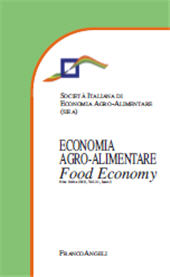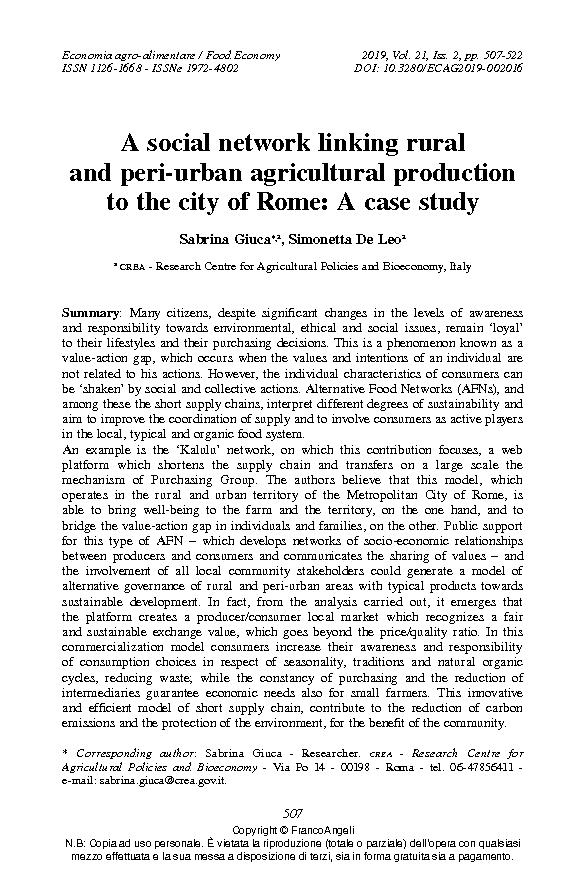A social network linking rural and peri-urban agricultural production to the city of Rome : a case study
507-522 p.
Many citizens, despite significant changes in the levels of awareness and responsibility towards environmental, ethical and social issues, remain 'loyal' to their lifestyles and their purchasing decisions. This is a phenomenon known as a value-action gap, which occurs when the values and intentions of an individual are not related to his actions. However, the individual characteristics of consumers can be 'shaken' by social and collective actions. Alternative Food Networks (AFNs), and among these the short supply chains, interpret different degrees of sustainability and aim to improve the coordination of supply and to involve consumers as active players in the local, typical and organic food system. An example is the 'Kalulu' network, on which this contribution focuses, a web platform which shortens the supply chain and transfers on a large scale the mechanism of Purchasing Group.
The authors believe that this model, which operates in the rural and urban territory of the Metropolitan City of Rome, is able to bring well-being to the farm and the territory, on the one hand, and to bridge the value-action gap in individuals and families, on the other. Public support for this type of AFN - which develops networks of socio-economic relationships between producers and consumers and communicates the sharing of values - and the involvement of all local community stakeholders could generate a model of alternative governance of rural and peri-urban areas with typical products towards sustainable development. In fact, from the analysis carried out, it emerges that the platform creates a producer/consumer local market which recognizes a fair and sustainable exchange value, which goes beyond the price/quality ratio. In this commercialization model consumers increase their awareness and responsibility of consumption choices
in respect of seasonality, traditions and natural organic cycles, reducing waste; while the constancy of purchasing and the reduction of intermediaries guarantee economic needs also for small farmers. This innovative and efficient model of short supply chain, contribute to the reduction of carbon emissions and the protection of the environment, for the benefit of the community. [Publisher's text].
Is part of
Economia agro-alimentare : XXI, 2, 2019-
Articles from the same issue (available individually)
-
Information
ISSN: 1972-4802
DISCIPLINES
KEYWORDS
- Short supply chain, social network, sustainable production, organic products, typical and local products



